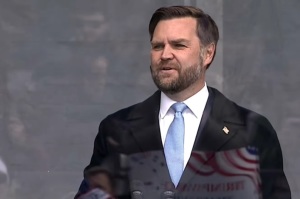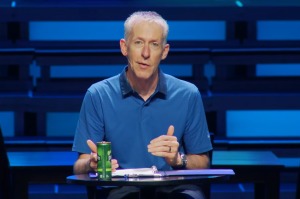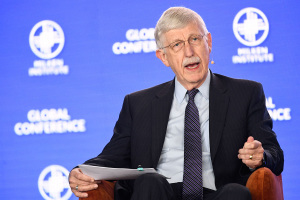Netanyahu Is Clear on His Identity, but Who Is Barack Obama?
Now we know who Netanyahu is – if we didn't before.
However, after six years of the Obama presidency, many still ask: Who is Barack Obama?
Netanyahu, as his March 3 speech before a joint session of Congress showed, understands that he is the protector of his nation's exceptional identity and core values, the defender of his people, and a leader who must make a stand.

Like him or loathe him, Netanyahu does not equivocate. He exposes the hard truth voiced by late Harvard sociologist Samuel Huntington that, to paraphrase, a nation that does not know its identity does not know its interests.
Netanyahu knows his identity and his nation's. He believes Israel is not merely a Jewish state, but, a giver and guardian of profound civilizing values. As Winston Churchill wrote long ago, "The Hebrew tribes wandering in the wilderness, though indistinguishable from numberless nomadic communities, grasped and proclaimed an idea of which all the genius of Greece and all the power of Rome were incapable."
It's no wonder Cal Thomas called Netanyahu's speech "Churchillian".
Whether one agrees with Churchill's assessment or not, Netanyahu, as he spoke, pointing at Moses' visage displayed in the congressional chamber, certainly does. He no doubt sees such a legacy as integral to his leadership of Israel. Because he has such a grasp of his country's historic identity he has piercingly clear understanding of its interests.
Netanyahu's speech March 3 showed that he doesn't only know his history, but is passionate about it. It made one yearn to watch an American President at that august podium speaking with such conviction of his nation's historic richness and core identity.
Which brings us to the search for Obama.
In recent times it has been literal. During the "I Am Charley" marches in Paris – where Netanyahu, by the way, was helping lead the pack whether people wanted him there or not – the world asked, "Where is Obama?"
And yet there is a deeper, more urgent question: "Who is Obama?"
I do not mean this in a "birther" sense, but as it relates to presuppositions, worldview, and the philosophies that guide his policies. Captain Queeg was terribly confused about those fundamentals personally, and sailed the good ship Caine toward the shoals and shipwreck. While Netanyahu seeks to steer his ship of state out of harm's way, Obama seems to be guiding America into a collision with the rocky beach.
Why does he do this? The question can only be answered against the backdrop of the other, again: Who is Barack Obama?
For starters, he is the first truly postmodern president. For a raw realist like Netanyahu, it is what it is. He has no choice but to address actual conditions on the ground, on the seas, and in the air. For a romantic idealist like Obama foreign policies are formulated as if the idealized world already exists. This is sheer postmodernism.
Second, Barack Obama, like most of us, holds dear the narrative formed in his childhood and youth. Memories of our early lives tend to lose their rough edges over time. Obama's narrative was an unlikely mixture of Islam from his father and step-father, and socialism veering, at times, all the way to communism, through the influence of his mother. While he may not have embraced either of these worldviews, the framing of our early years impacts our present view of reality. They constitute a spiritual-ideological lap into which we sometimes crawl.
Third, Barack Obama is the epitome of leftist progressivism. Victor Davis Hanson, in National Review, described how this works out in foreign policy. It's the one percent inequity: in the same way the rich have more power than their proportion of the population would justify, so wealthy America has thrown its weight around too much internationally. Therefore, this means, in Hanson's words, "the transformation of the U.S. into something like the European Union, whose democratic socialism is manifested abroad with soft-power lectures."
Finally, President Obama seems to conflate transformation with obliteration. Recently there has been debate about whether Obama loves America. I think he does love the America he envisions and has committed himself to bringing about. There is an America he does not like, seeing it as the perpetrator of great evils. This is the America he seeks to "transform". However, Obama's foreign and defense policy suggests he may have confused transformation and obliteration.
Here's the harsh reality of the contemporary complicated world:
Israel knows who it is and what its interests are. Iran knows who it is and what its interests are. ISIS knows who it is and what its interests are. North Korea knows who it is and what its interests are.
In such a world a foreign policy of ambiguity and uncertainty about national interests and identity is irrelevant to the situation – deadly so. As many Americans – and others, Netanyahu, maybe – are searching for Obama, there's a sense in which Obama is searching for America.
Let us hope he finds it soon.



























